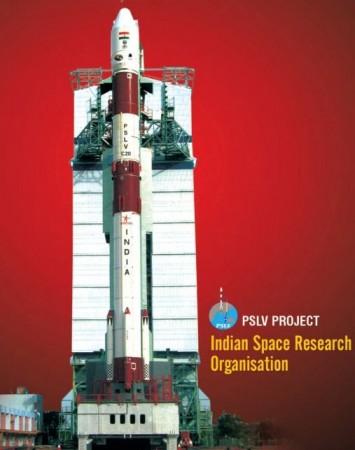
The launch of Indian Regional Navigation Satellite System-1A will be delayed by a fornight in the wake of an electrical snag detected in the launch vehicle.
The satellite IRNSS-1A is the first of the seven navigational satellites that Indian Space Research Organization (ISRO) was scheduled to launch aboard the home-grown polar satellite launch vehicle, PSLV-C22, from the launch pad in Sriharkota, Andhra Pradesh on 12 June. The launch vehicle was fully integrated and undergoing electrical checks, when the anomaly was detected. This would delay the launch by 14 days, according to ISRO.
"During the electrical checks of the launch vehicle, an anomaly was observed in one of the electro-hydraulic control actuators in the second stage. It has been decided to replace this actuator," ISRO said in a statement.
"The replacement of the control actuator needs two weeks of activity at the Launch Pad and the Vehicle Assembly Area. Accordingly, the launch of PSLV-C22/IRNSS-1A is delayed by a fortnight with respect to the original scheduled date of June 12, 2013," the statement read.
The IRNSS, which is an independent navigation satellite system developed by India, will have a constellation of seven satellites that would help users to determine their location and time accurately. IRNSS will be India's version of the Global Positioning System (GPS).The satellites are designed to provide position accuracy better than 10 metres over India as well as the region extending up to 1,500km around the sub-continent. According to ISRO chairman K Radhakrishnan, the Indian navigational satellites will provide multiple services to the users including two basic services - standard positioning service for common users and restricted service for authorised users.
A minimum of four satellites are required for a smartphone or a vehicle to use the signals and calculate the positional fix, according to a BBC report. While the first satellite will be launched after 14 days, ISRO is planning to launch the rest of the six satellites by 2014-15.
Ahead of the impending launch, the ISRO Navigation Centre (INC) was opened by the space agency at Byalalu, about 40km from Bangalore on 28 May. The navigation system needs time reference to which all ground systems and the satellite clocks are synchronised. This time reference is generated by the high precision timing facility located at INC.
"This timing facility is equipped with high stability, high precision atomic clocks to provide stable and continuous time reference to the navigation system," ISRO said.
The IRNSS will have a network of 21 ranging stations spread mostly across India that will provide data for the orbit determination of IRNSS satellites and monitoring of the navigation signals.






![Miss Universe 2024: India's Rhea Singha slayed swimsuit round but failed to reach Top 12 [Watch]](https://data1.ibtimes.co.in/en/full/806361/miss-universe-2024-indias-rhea-singha-slayed-swimsuit-round-failed-reach-top-12-watch.jpg?w=220&h=138)



